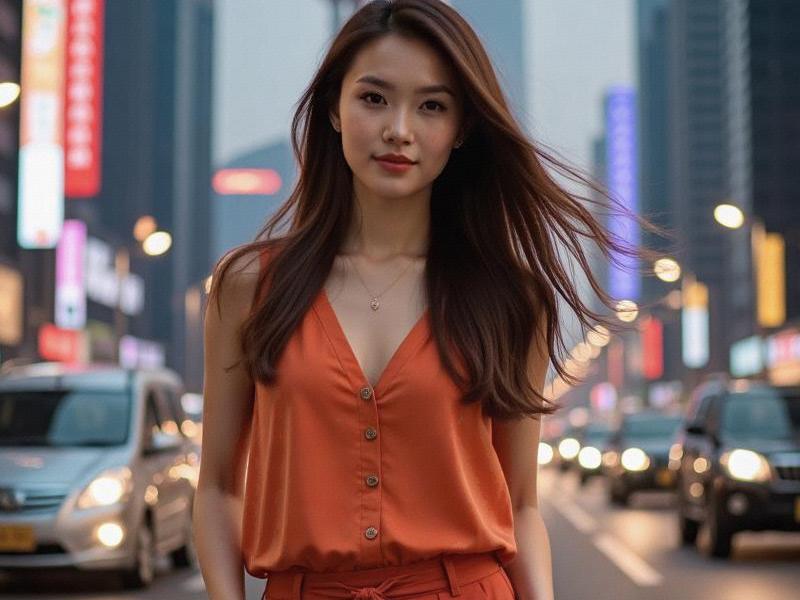Shanghai After Dark: The Reinvention of China's Premier Nightlife Destination
⏱ 2025-06-30 04:12 🔖 上海龙凤娱乐联盟
📢0℃

The neon lights of Shanghai's entertainment districts cast kaleidoscopic patterns on the Huangpu River as another night of revelry begins. From the art deco facades of the Bund to the futuristic towers of Pudong, the city's nightlife scene has undergone a remarkable transformation in recent years - evolving from simple KTV parlors to multifaceted entertainment complexes that rival those in New York or Tokyo.
The New Golden Age of Shanghai Nightlife
Shanghai's entertainment industry has rebounded strongly post-pandemic, with the "night economy" contributing approximately ¥450 billion (about $62 billion) to the city's GDP in 2024. The modern entertainment venue in Shanghai is no longer just about singing and drinking; it's about curated experiences. High-end clubs like Mao Livehouse and Arkham have pioneered a new model combining live music, immersive art installations, and gourmet dining.
The city now boasts over 3,800 licensed entertainment venues, categorized into:
- Premium KTV clubs (32%)
- Business reception lounges (25%)
- Live music venues (18%)
- Thematic entertainment complexes (15%)
- Traditional tea houses and opera venues (10%)
上海花千坊龙凤 Business and Pleasure: The Shanghai Model
What distinguishes Shanghai's entertainment culture is its seamless integration with business networking. Venues like The One Executive Club in Jing'an District have perfected the art of corporate hospitality, offering private rooms equipped with both karaoke systems and presentation screens. "About 60% of our weekday clients are business groups," reveals manager Liu Wei. "They'll discuss mergers over maotai cocktails, then seal deals singing Cantopop classics."
This business-entertainment fusion follows strict protocols:
- Discreet service staff trained in confidentiality
- Customizable room layouts for different group sizes
- Advanced soundproofing for private discussions
- Digital payment systems with corporate billing options
Regulatory Renaissance
Shanghai's entertainment industry operates under China's strictest regulatory framework. The 2023 Shanghai Municipal Entertainment Venues Management Regulations introduced:
上海贵族宝贝sh1314 - Facial recognition entry systems
- Real-time monitoring of alcohol sales
- Mandatory "sobering-up" lounges in large venues
- Stricter noise pollution controls
These measures have professionalized the sector while maintaining Shanghai's reputation for safe, high-quality nightlife. "The regulations actually helped legitimize our business," notes Zhou Min, owner of Galaxy Club in Xuhui District. "Customers know they're getting clean, above-board entertainment."
Cultural Fusion in Entertainment Design
Shanghai's top venues showcase remarkable cultural synthesis:
- Yu Yuan Ming Club blends Ming Dynasty aesthetics with VR gaming lounges
- Cloud Nine features weekly jazz nights with erhu fusion performances
爱上海419 - The newly opened Huangpu Memory offers "time capsule" rooms recreating 1930s Shanghai with holographic hostesses
This cultural innovation extends to food and beverage offerings. Signature cocktails like the "Shanghai Cosmo" (featuring baijiu-infused cranberry) and "Bund Sour" (with yellow wine instead of whiskey) demonstrate how mixologists are reinventing Chinese flavors for global palates.
The Future of Shanghai Nightlife
Emerging trends suggest continued evolution:
1. "Healthy nightlife" concepts featuring alcohol-free bars and organic mixers
2. AI-powered personalized entertainment recommendations
3. Membership-based "entertainment ecosystems" linking multiple venues
4. Increased integration with cultural tourism initiatives
As Shanghai positions itself as a global cultural capital, its entertainment venues serve as both playgrounds and prototypes - spaces where tradition and innovation, business and pleasure, East and West meet under the glow of the city's eternal neon lights.
Shanghai's New Femininity: How Urban Women Are Reshaping China's Social LandscapeNeon Renaissance: How Shanghai's Elite Clubs Are Redefining China's Nightlife EconomyThe Shanghai Modern: How Women Are Redefining China's Global City"Neon Algorithms: How Shanghai's Nightlife Districts Are Reinventing Luxury Entertainment"The Velvet Rope Revolution: Inside Shanghai's Next-Gen Entertainment PalacesThe Shanghai Paradox: Where Quantum Computing Meets Qing Dynasty TeahousesShanghai's Nightlife Renaissance: How Luxury Clubs Are Redefining Urban EntertainmentShanghai Beauties: A Glimpse into the Elegance and Diversity of Shanghai's WomenShanghai 2025: Where Futuristic Ambition Meets Timeless HeritageShanghai 2045: The Making of a Neo-Futurist Megacity
The New Golden Age: Shanghai's Entertainment Clubs Redefining Urban NightlifeNeon Renaissance: How Shanghai's Entertainment Clubs Are Reinventing Urban NightlifeShanghai's Feminine Revolution: How Urban Women Are Redefining Chinese Beauty StandardsThe Yangtze Delta Megaregion: Shanghai's Symbiotic Relationship with Neighboring CitiesShanghai Glamour: The Evolution of Beauty Standards in China's Cosmopolitan CapitalShanghai After Dark: How the City's Entertainment Clubs Became Global TrendsettersRedefining Shanghai Femininity: How Modern Shanghainese Women Are Shaping China's FutureMetropolitan Symbiosis: How Shanghai and Its Neighbors Are Redefining Regional DevelopmentShanghai's Modern Women: Redefining Beauty, Power and Influence in 21st Century ChinaShanghai's Dual Renaissance: How China's Global City Reinvents Itself Without Forgetting Its Past

